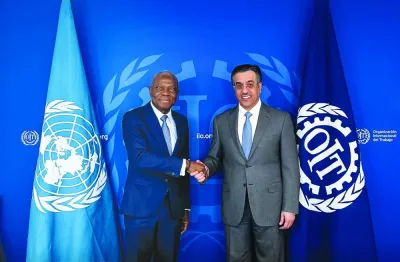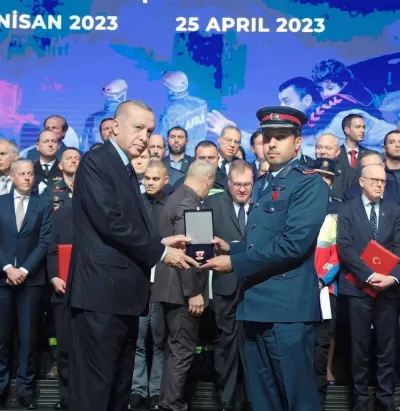The National Human Rights Committee (NHRC) had acted quickly after the blockade was imposed on Qatar on June 5, 2017 by Saudi Arabia, the UAE, Bahrain and Egypt, to stress that cutting diplomatic and political relationships should not affect the human rights of people.
NHRC chairman HE Dr Ali bin Smaikh al-Marri was speaking at a seminar on ‘Qatar’s dignity and victory after nine months of siege’ hosted by Gulf Times’ sister Arabic daily Arrayah on Sunday evening at the Ritz-Carlton Doha.
He recalled that the NHRC had convened a press conference on June 6, 2017, and stressed that the blockade should not be a tool of collective punishment for the people.
Accordingly, a crisis management team was formed and a hotline allocated to receive the complaints of those hurt due to the blockade, whether Qataris or expatriates.
“In previous years, we used to receive around 1,600 complaints a month, but we received as many grievances within the first two weeks of the blockade,” he said.
Dr al-Marri pointed out that the NHRC contacted various international human rights organisations immediately after the blockade was first imposed, and managed to get the Office of the United Nation Commissioner for High Human Rights, the Human Rights Watch and Amnesty International to condemn the practices of the blockading countries against the people of Qatar.
These world organisations alongside other countries in Europe and the US stressed that such measures are considered flagrant violations of the human rights.
He pointed out that during the initial phase of the blockade, there were attempts to isolate Qatar internationally, with the Saudi foreign minister visiting many capitals to get support for cutting relations with Qatar, a move that eventually did not succeed.
The NHRC also exerted great efforts and managed to organise an international conference on the freedom of expression in Doha on July 24, which was a great success in spite of the various attempts to make it a failure.
Representatives of more than 230 world organisations related to free speech and journalism condemned the practices of the blockading countries and had then stressed that Al Jazeera Channel should not be closed and this demand is neither reasonable nor justifiable in any way.
Representatives from the United Nations’ Office of the High Commissioner for Human Rights visited Qatar and a request was made to visit the blockading countries to hear from them, but was eventually denied.
Delegations from the UK Parliament, the US Congress and the EU all condemned the practices of the blockade as collective punishment of the people.
The NHRC has taken all the necessary legal and judicial procedures to protect the rights of the people harmed by the blockade.
Dr al-Marri stressed that before any potential political solutions for the Gulf crisis, which could be worked out at a forthcoming meeting in the US, all practices causing human rights violations should be stopped.
Asked about the practical outcomes of the international condemnations of the practices of the blockading countries, the NHRC chairman pointed out that these helped in making some of them revise their illegal practices, such as when Saudi Arabia allowed Qataris to perform the Haj and further curbed any potential expansion of these violations.
Qatar / Qatar
NHRC chief recalls international co-operation after illegal blockade was imposed on Qatar

NHRC chairman HE Dr Ali bin Smaikh al-Marri makes a point at the seminar.


